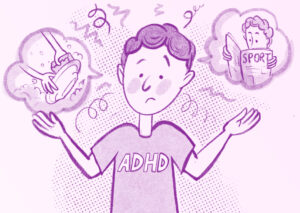Stress is an unavoidable part of life, affecting people of all ages and backgrounds. While some level of stress can motivate us to achieve our goals, chronic or unmanaged stress can take a significant toll on both mental and physical health. If you’ve ever found yourself overwhelmed and searching for a psychologist near me, you’re not alone—seeking professional help is a proactive step toward understanding and managing stress effectively.
This blog dives deep into the science of stress, its effects on mental health, and how therapy can provide effective tools to reclaim control and balance in life.
Table of Contents
ToggleWhat is Stress?
Stress is the body’s natural response to a challenge or demand. It triggers the “fight-or-flight” response, releasing hormones like adrenaline and cortisol to help us cope with immediate threats. While short-term stress can be beneficial in certain situations, prolonged stress—commonly known as chronic stress—can harm mental and physical well-being.
Types of Stress
- Acute Stress:
Short-term stress that arises from immediate challenges, such as meeting a deadline or preparing for an exam. - Chronic Stress:
Persistent stress caused by ongoing issues like financial difficulties, relationship problems, or work-related pressures. - Episodic Acute Stress:
Frequent episodes of acute stress, often experienced by people who take on too much or have high-stress lifestyles. - Traumatic Stress:
Stress resulting from traumatic events such as accidents, natural disasters, or abuse.

The Effects of Stress on Mental Health
Chronic stress can have a profound impact on mental health, leading to conditions such as:
- Anxiety Disorders: Persistent worry and fear can escalate into anxiety disorders over time.
- Depression: Chronic stress can deplete energy, reduce motivation, and lead to feelings of hopelessness.
- Burnout: A state of emotional, physical, and mental exhaustion caused by prolonged stress, particularly in work settings.
- Post-Traumatic Stress Disorder (PTSD): Stress from traumatic experiences can develop into PTSD, affecting daily life and relationships.
Stress can also exacerbate existing mental health conditions, making professional intervention essential.
The Physical Toll of Stress
Stress doesn’t just affect the mind—it has tangible effects on the body, including:
- Heart Problems: Increased risk of hypertension, heart attacks, and strokes.
- Immune System Suppression: Chronic stress weakens the immune system, making you more susceptible to illnesses.
- Digestive Issues: Stress can lead to conditions like irritable bowel syndrome (IBS) and acid reflux.
- Sleep Disorders: Difficulty falling or staying asleep due to racing thoughts and tension.
If you’re experiencing physical symptoms of stress, searching for a psychologist near me can help you address the root causes.
The Role of Therapy in Stress Management
Therapy is a proven method for understanding and managing stress. It provides a safe space to explore your feelings, identify triggers, and develop coping strategies.
1. Cognitive-Behavioral Therapy (CBT):
CBT helps you recognize negative thought patterns and replace them with healthier ones, reducing stress and anxiety.
2. Mindfulness-Based Stress Reduction (MBSR):
This approach focuses on mindfulness techniques like meditation and deep breathing to help you stay present and manage stress effectively.
3. Psychodynamic Therapy:
Exploring past experiences and unresolved conflicts can help you understand the sources of your stress and address them constructively.
4. Solution-Focused Brief Therapy (SFBT):
This short-term therapy focuses on finding practical solutions to current challenges, empowering you to take control of your stress.
Recognizing When to Seek Help
Stress is a normal part of life, but it becomes a problem when it interferes with your daily functioning. Here are some signs that it’s time to look for a psychologist near me:
- Persistent feelings of overwhelm or helplessness.
- Difficulty concentrating or making decisions.
- Frequent headaches, muscle tension, or other physical symptoms.
- Sleep disturbances, such as insomnia or oversleeping.
- Changes in appetite or energy levels.
- Withdrawal from friends, family, or activities you once enjoyed.
Why Therapy is a Game-Changer for Stress
Therapy offers several advantages when it comes to managing stress:
- Personalized Care: A therapist tailors strategies to your unique needs and stressors.
- Safe Environment: Therapy provides a judgment-free space to express your feelings and concerns.
- Skill Development: Learn techniques to manage stress, improve communication, and build resilience.
- Long-Term Benefits: Therapy not only helps manage current stress but also equips you with tools to handle future challenges.
How to Find the Right Therapist
If you’ve decided to seek therapy, the next step is finding the right professional. Here are some tips:
- Research Credentials: Look for a licensed psychologist or therapist with experience in stress management.
- Read Reviews: Online reviews can provide insights into a therapist’s approach and effectiveness.
- Ask Questions: Don’t hesitate to ask about their methods, experience, and success stories.
- Prioritize Comfort: Choose someone you feel comfortable opening up to; this is crucial for effective therapy.
Searching online for a psychologist near me is a great starting point to explore your options.
How Arpan Sarma Can Help
Arpan Sarma is a seasoned psychologist based in Kolkata, specializing in stress management and mental health therapy.
What Sets Arpan Sarma Apart?
- Empathy and Understanding: A compassionate listener who creates a safe and welcoming environment.
- Evidence-Based Methods: Employs proven techniques like CBT, mindfulness, and relaxation strategies.
- Tailored Approach: Designs personalized treatment plans to address your specific stressors.
- Convenient Access: A trusted option for those searching for a psychologist near me in Kolkata.
Whether you’re dealing with chronic stress or simply need support navigating life’s challenges, Arpan Sarma provides the guidance and tools you need to thrive.
Practical Tips to Manage Stress
While therapy is highly effective, incorporating daily habits can also help manage stress:
- Practice Mindfulness: Dedicate 10–15 minutes daily to mindfulness meditation.
- Exercise Regularly: Physical activity reduces stress hormones and boosts endorphins.
- Stay Connected: Share your feelings with trusted friends or family members.
- Prioritize Sleep: Aim for 7–8 hours of quality sleep each night.
- Set Boundaries: Learn to say no and prioritize self-care.
- Limit Screen Time: Take regular breaks from digital devices to recharge.
Breaking the Cycle: Stress Relief Starts Here
Stress may be a part of life, but it doesn’t have to control your life. Therapy provides the tools and insights needed to break free from the cycle of stress and build a healthier, more balanced future.
If you’re feeling overwhelmed, don’t hesitate to take the first step. Search for a psychologist near me and start your journey toward healing and self-discovery.
Conclusion: Your Path to a Stress-Free Life
Stress is a challenge, but with the right support, it’s one you can overcome. Therapy offers a safe space to address your stressors, understand your emotions, and develop practical strategies for long-term well-being.
Arpan Sarma, a trusted psychologist in Kolkata, is here to guide you on this journey. Take the first step today by reaching out for support—because your mental health matters.
Disclaimer:
Emergency Procedure:
In case of a mental health emergency, Arpan Sarma encourages clients to contact local emergency services immediately. Therapy sessions and communications are not intended to provide emergency assistance. For urgent crises, such as suicidal thoughts or self-harm, seek immediate help through emergency hotlines or mental health crisis centers.
Confidentiality Limitation:
Arpan Sarma upholds strict confidentiality; however, legal and ethical guidelines may require him to disclose information in specific situations, such as imminent harm to self or others, abuse cases, or court orders. Clients are encouraged to discuss these limitations to understand when confidentiality might be ethically breached.
Scope of Practice:
As a licensed psychologist, Arpan Sarma specializes in therapy, counseling, and mental health assessments. He does not prescribe medication or offer medical advice, and clients with medication needs should consult a licensed psychiatrist or medical doctor. His scope is limited to psychological treatment and counseling services within his qualifications.
Professional Boundaries:
Maintaining a professional client-therapist relationship is essential to effective treatment. Arpan Sarma respects clear boundaries to ensure objectivity and therapeutic progress. Personal relationships or social interactions outside of therapy are avoided to preserve confidentiality, ethical standards, and the integrity of the therapeutic relationship.
Treatment May Vary from Client to Client:
Each client’s therapy plan is customized based on their unique needs, goals, and responses to treatment. Psychological treatment is not one-size-fits-all; Arpan Sarma designs personalized plans, adapting evidence-based techniques to optimize client outcomes. Progress and techniques may vary according to individual circumstances and therapeutic goals.







